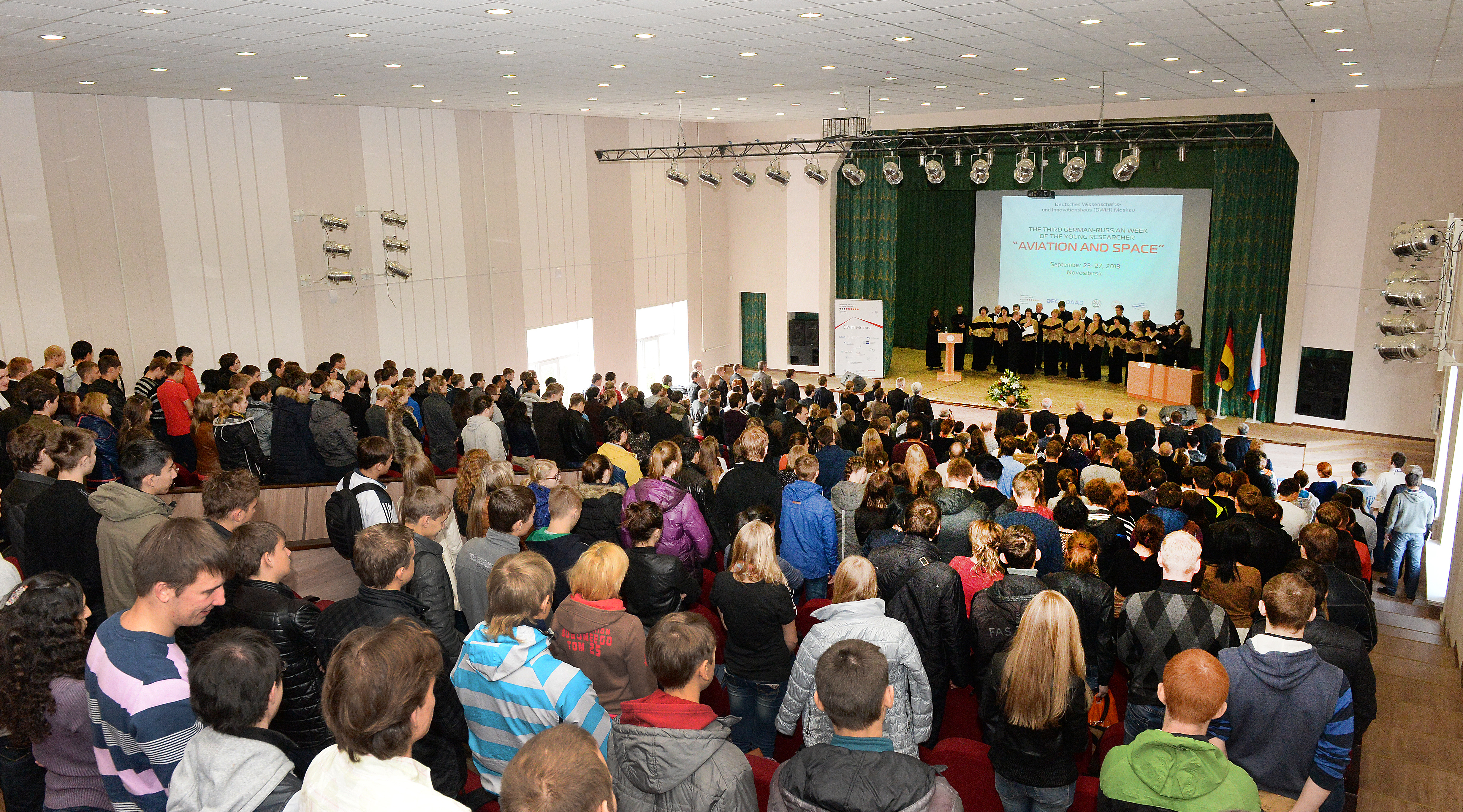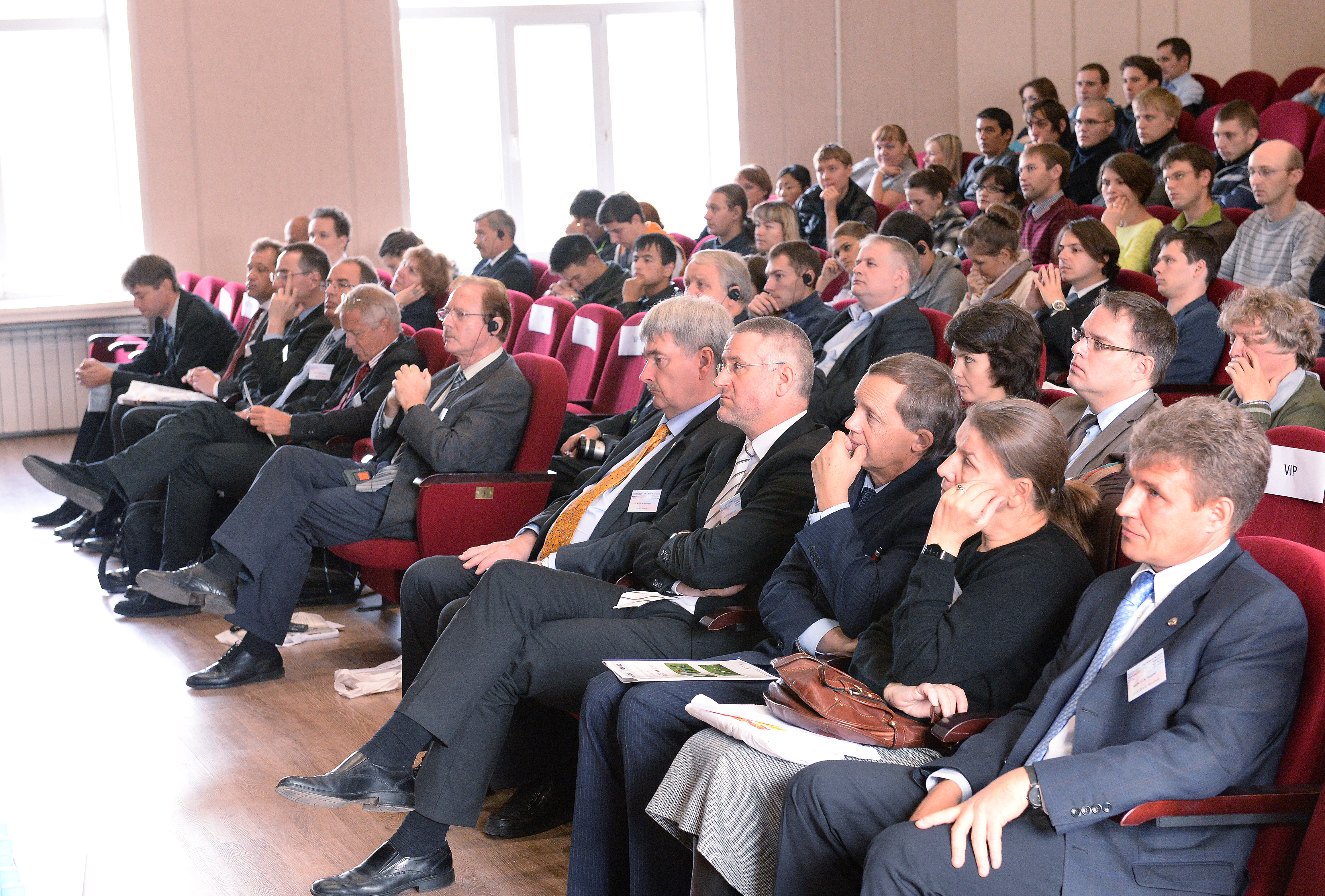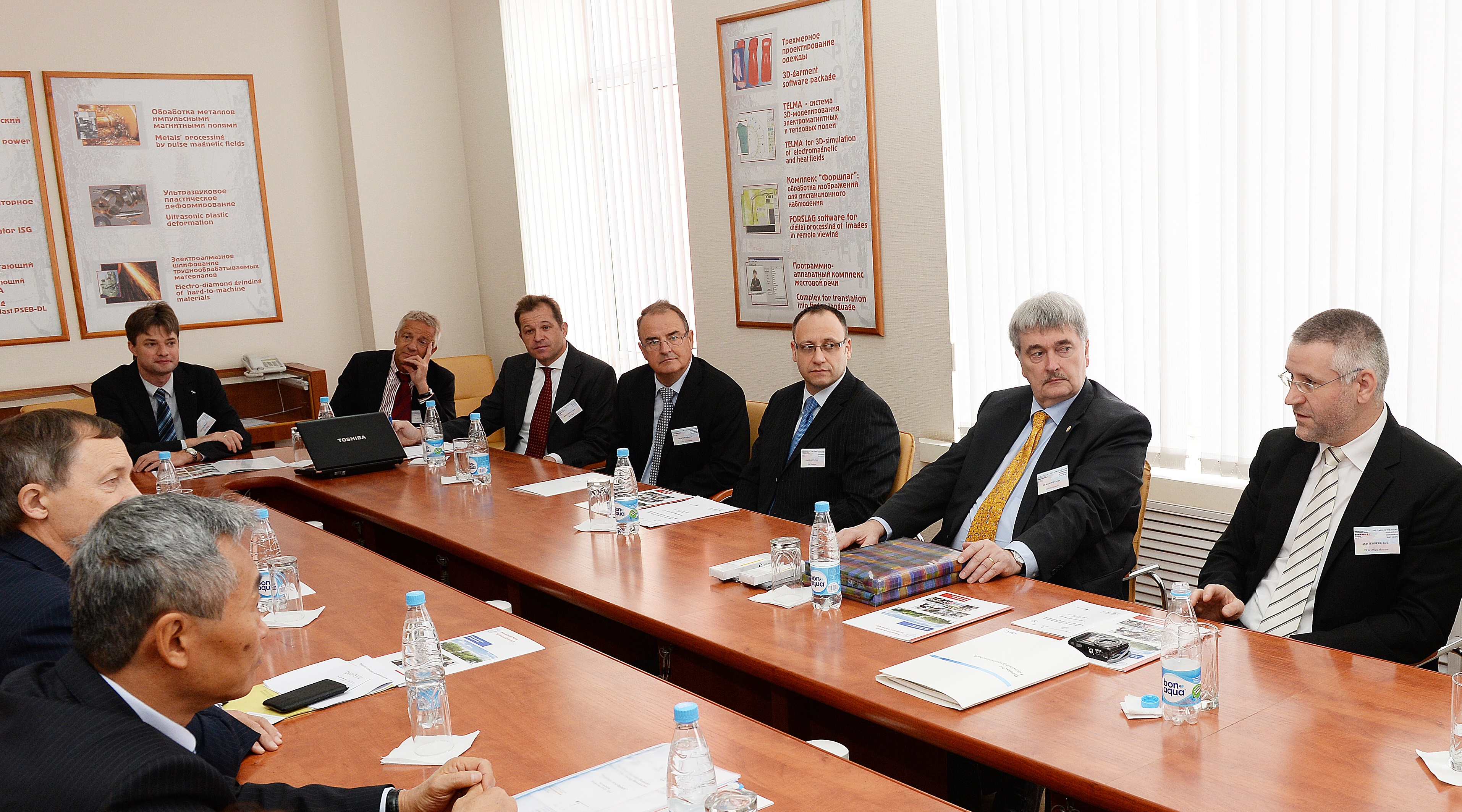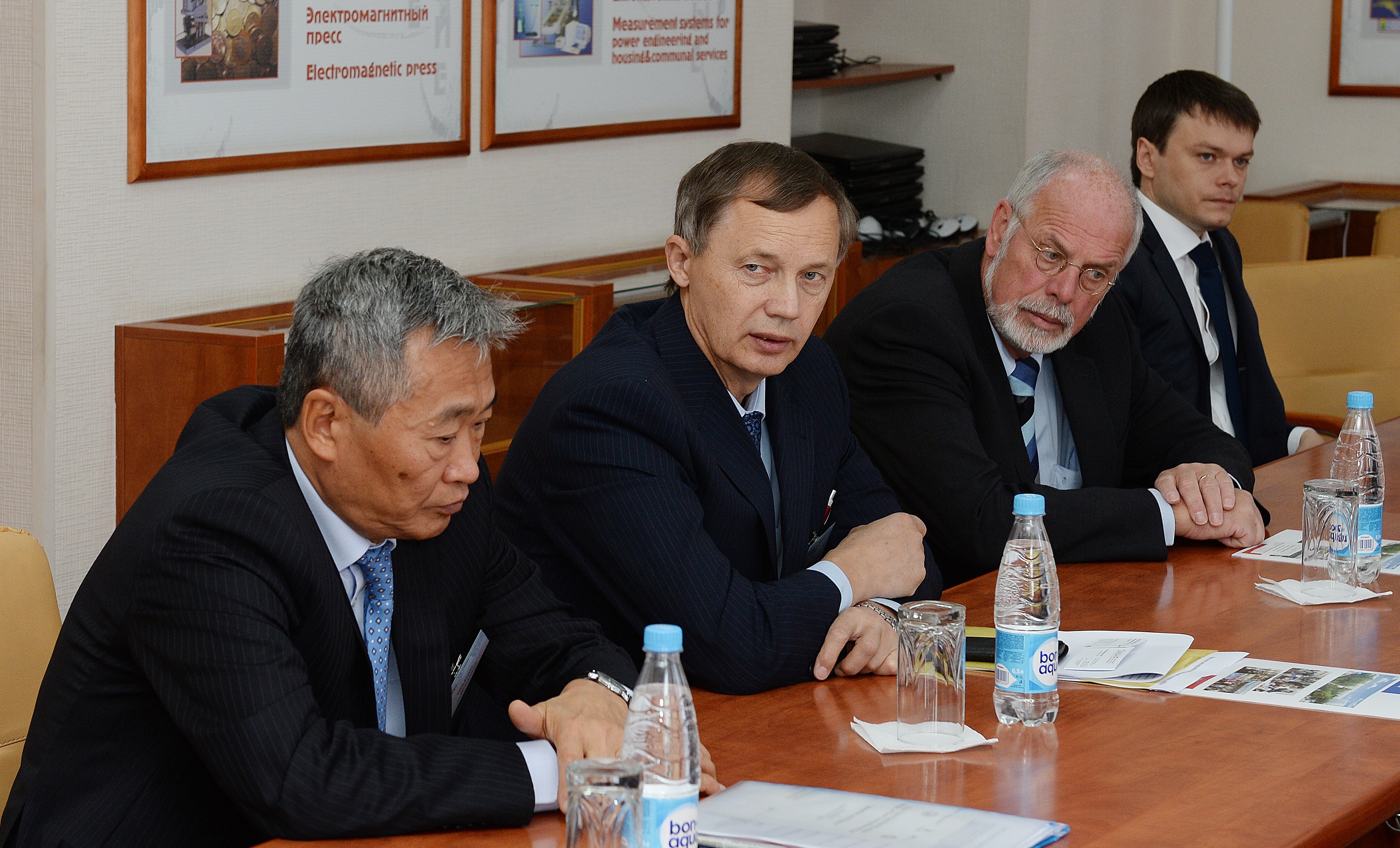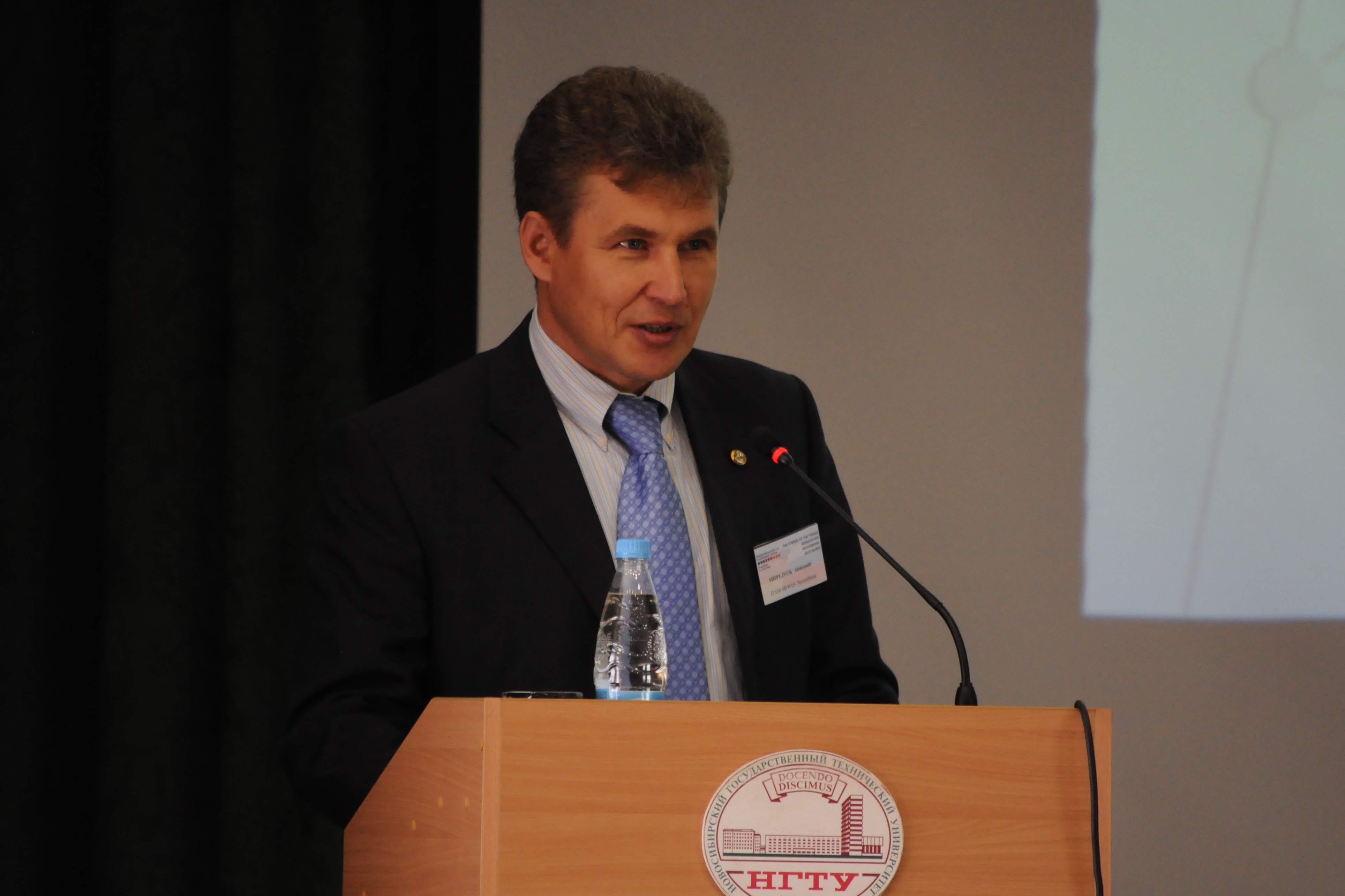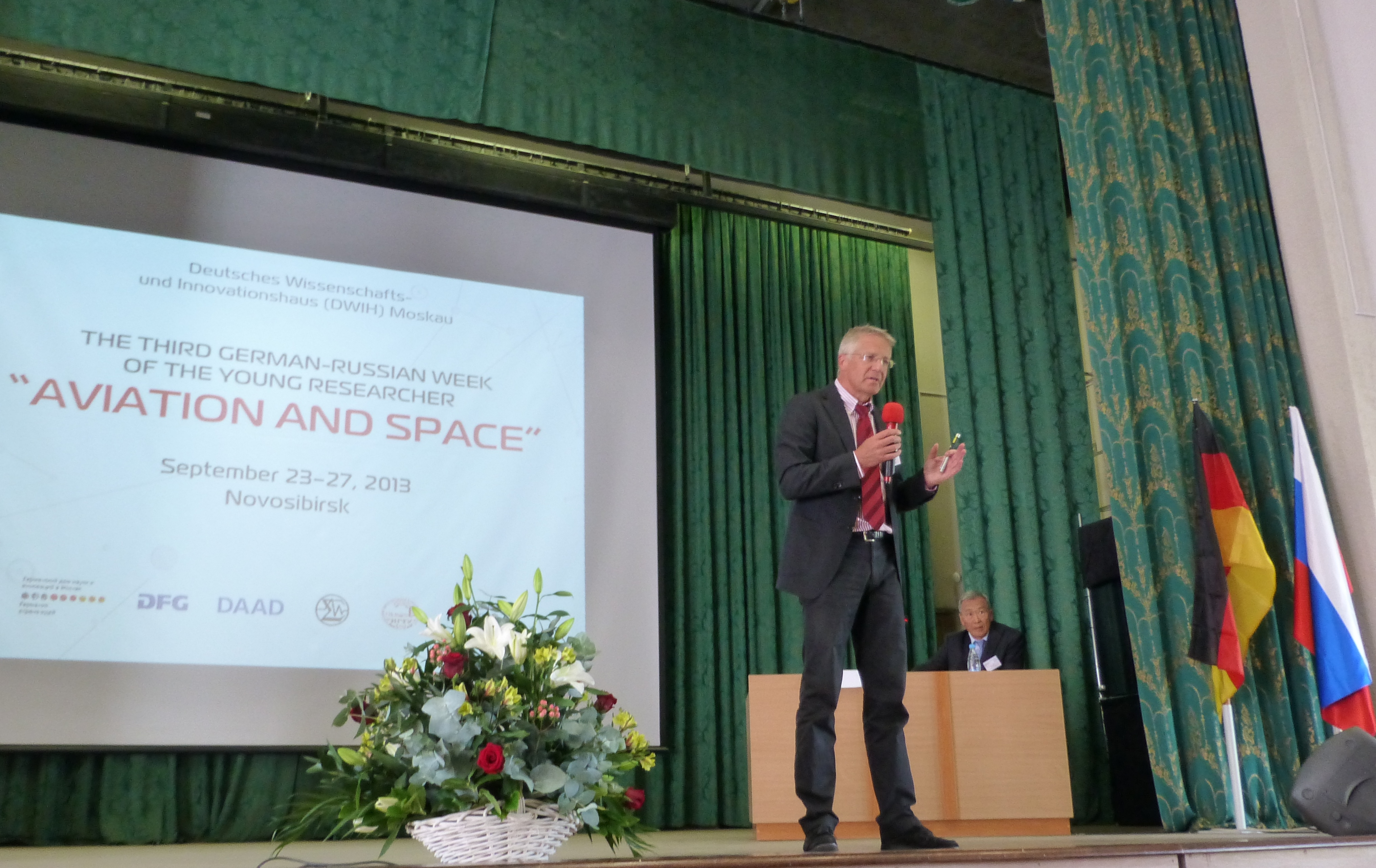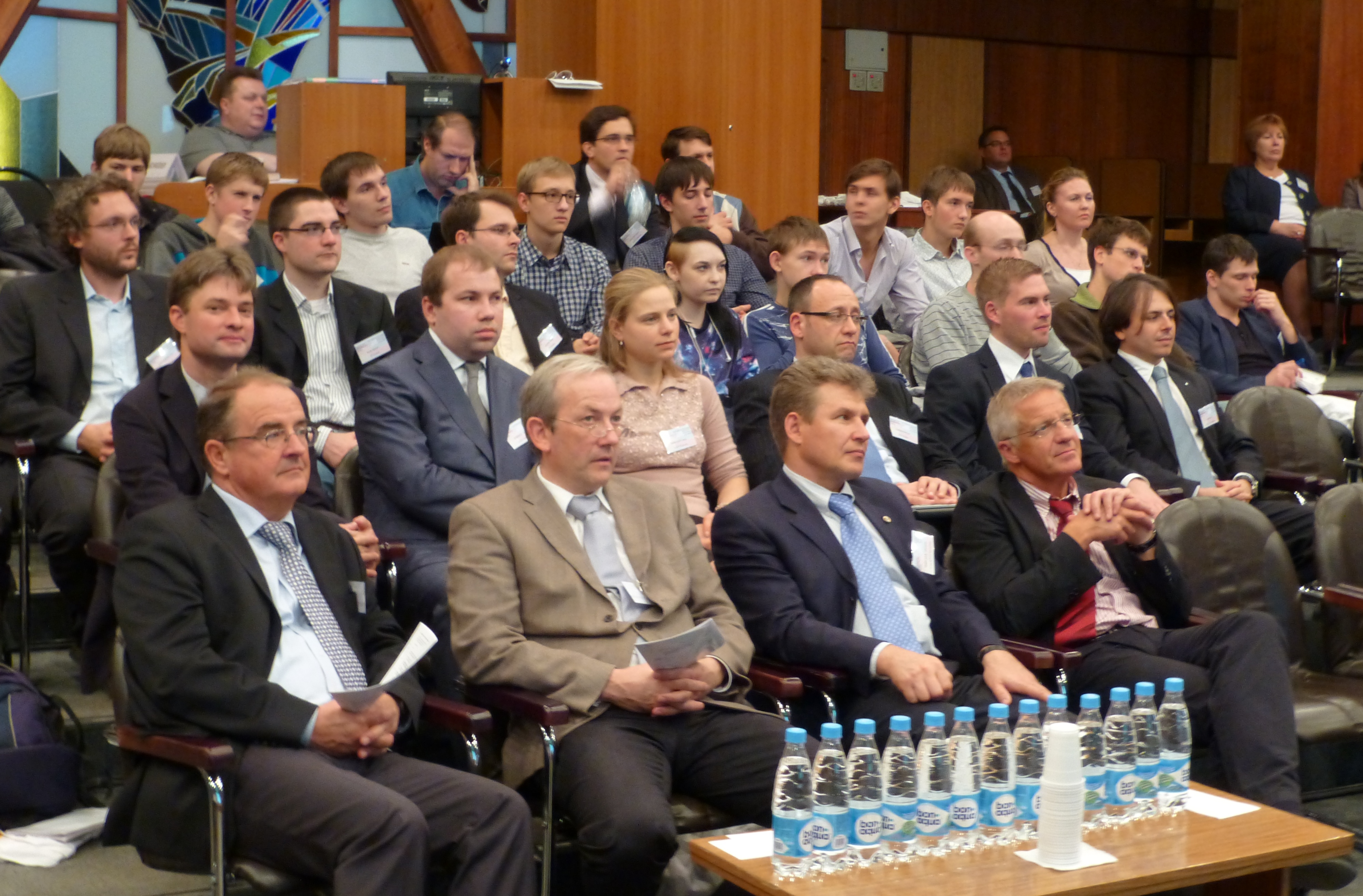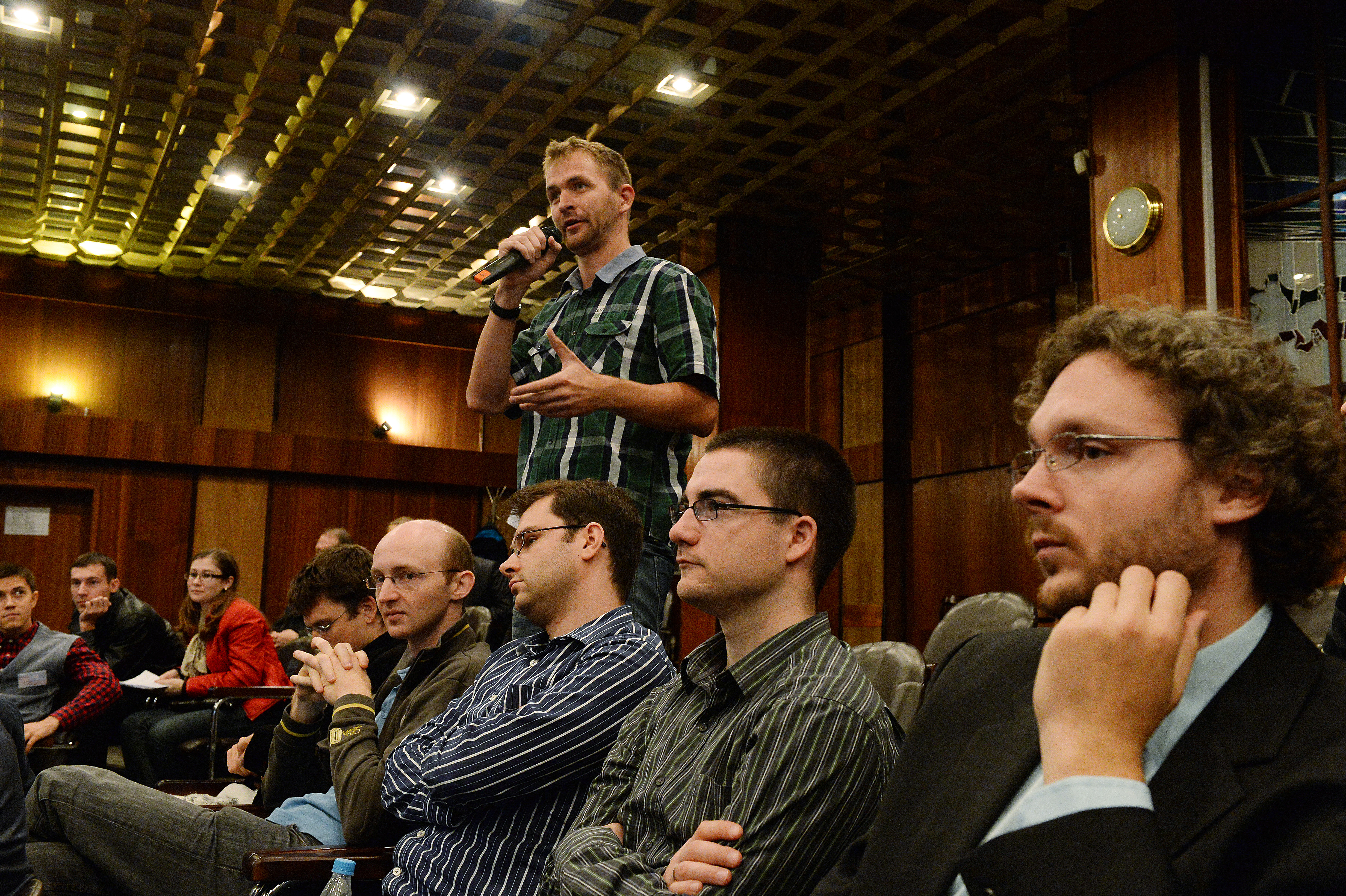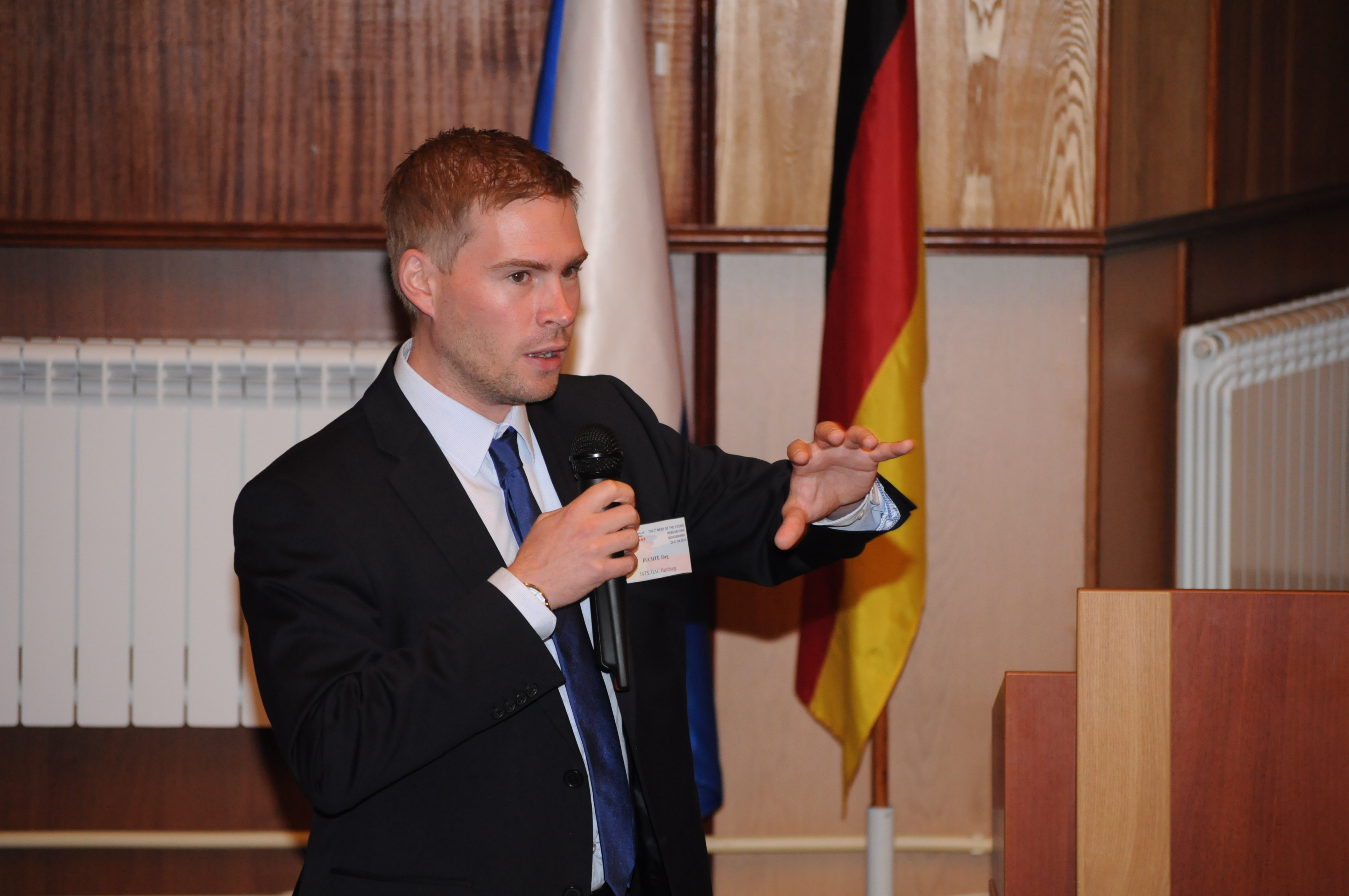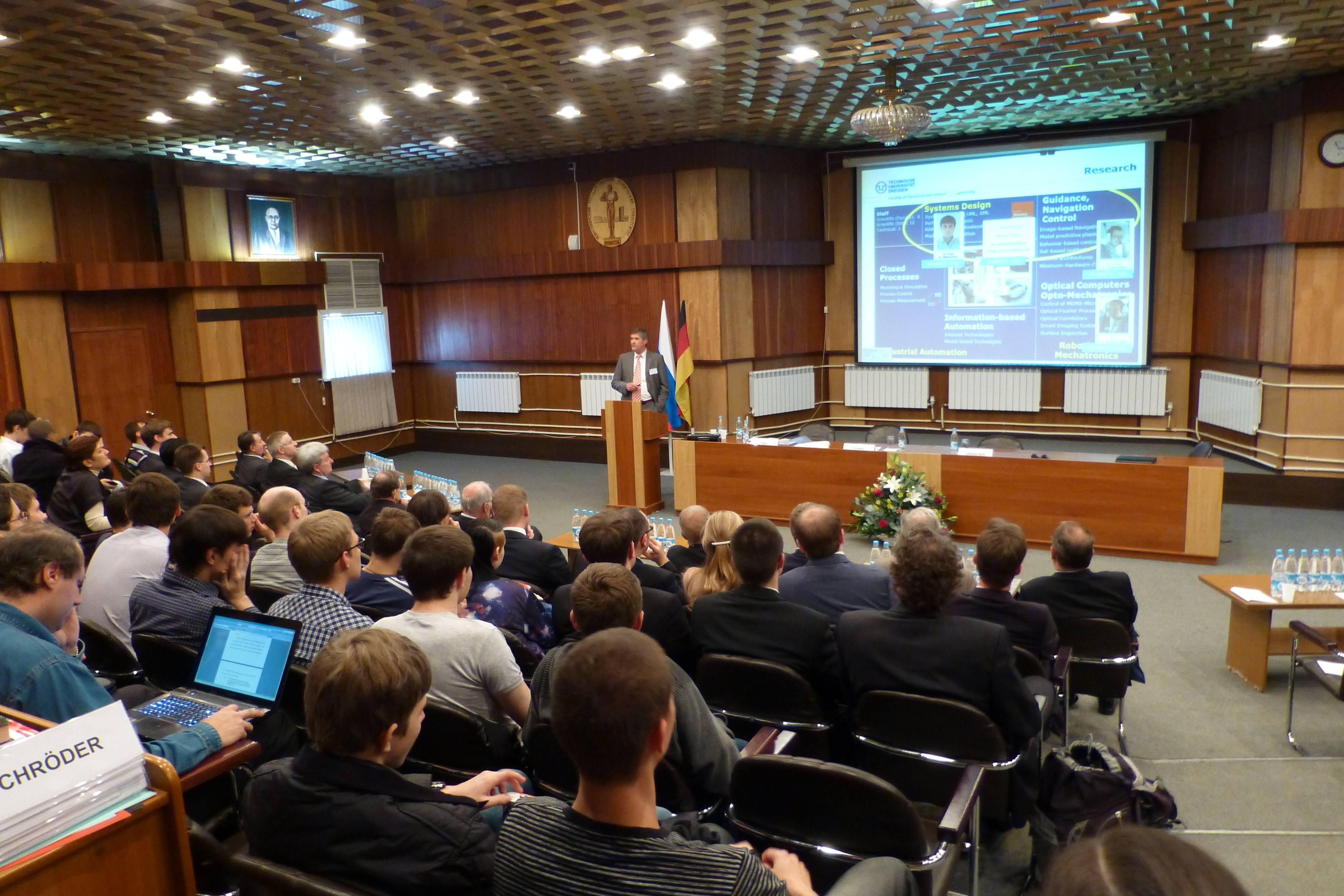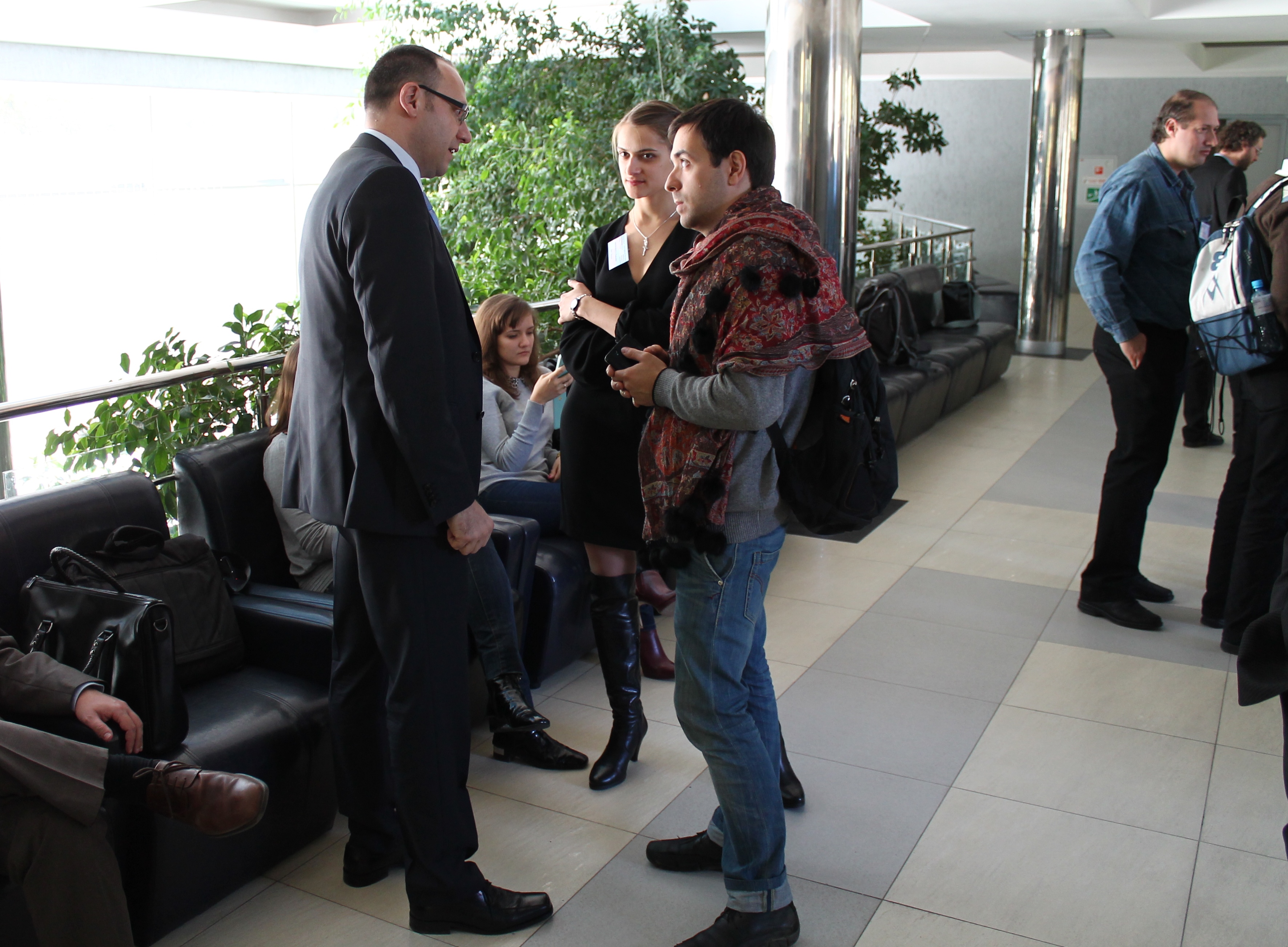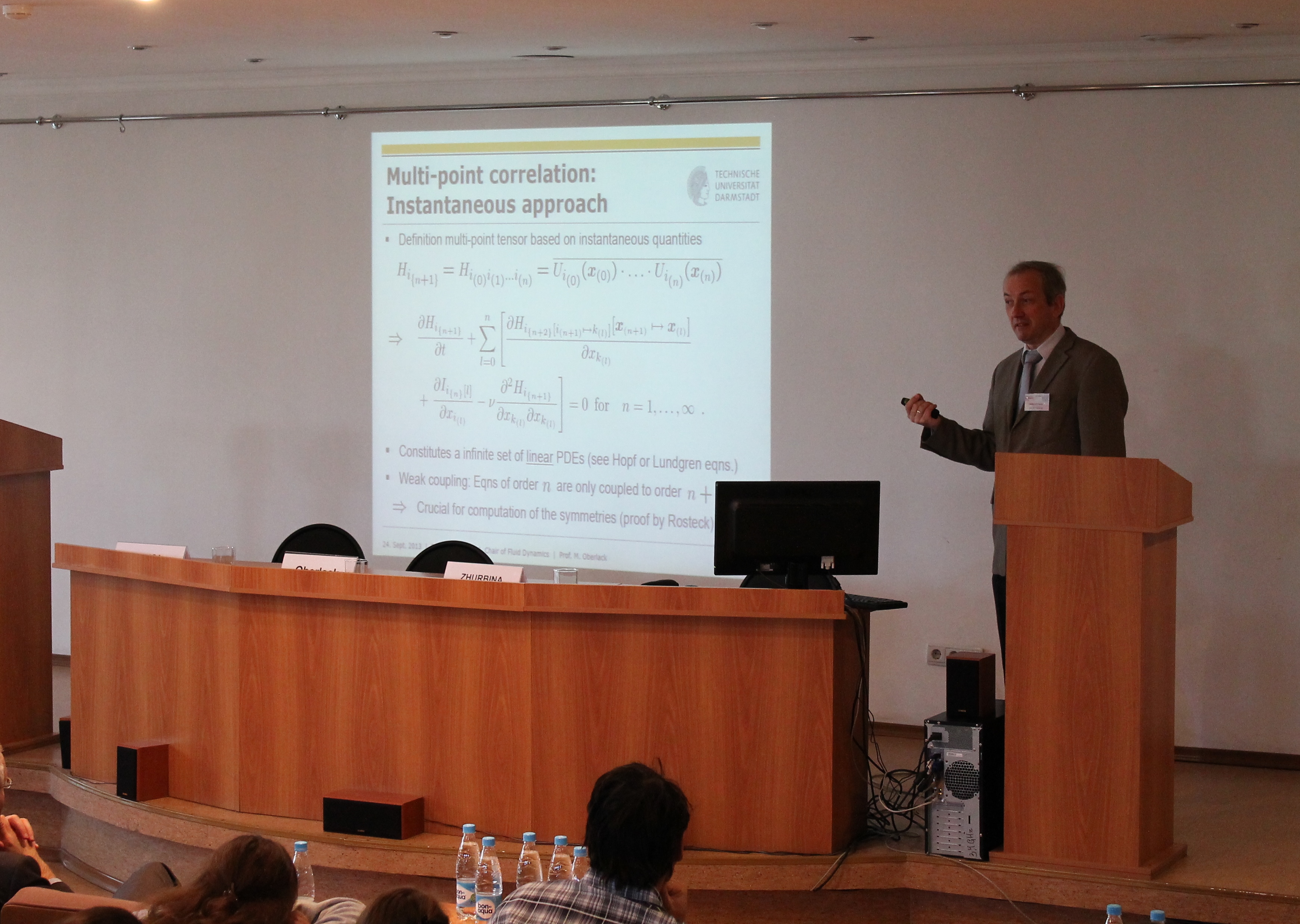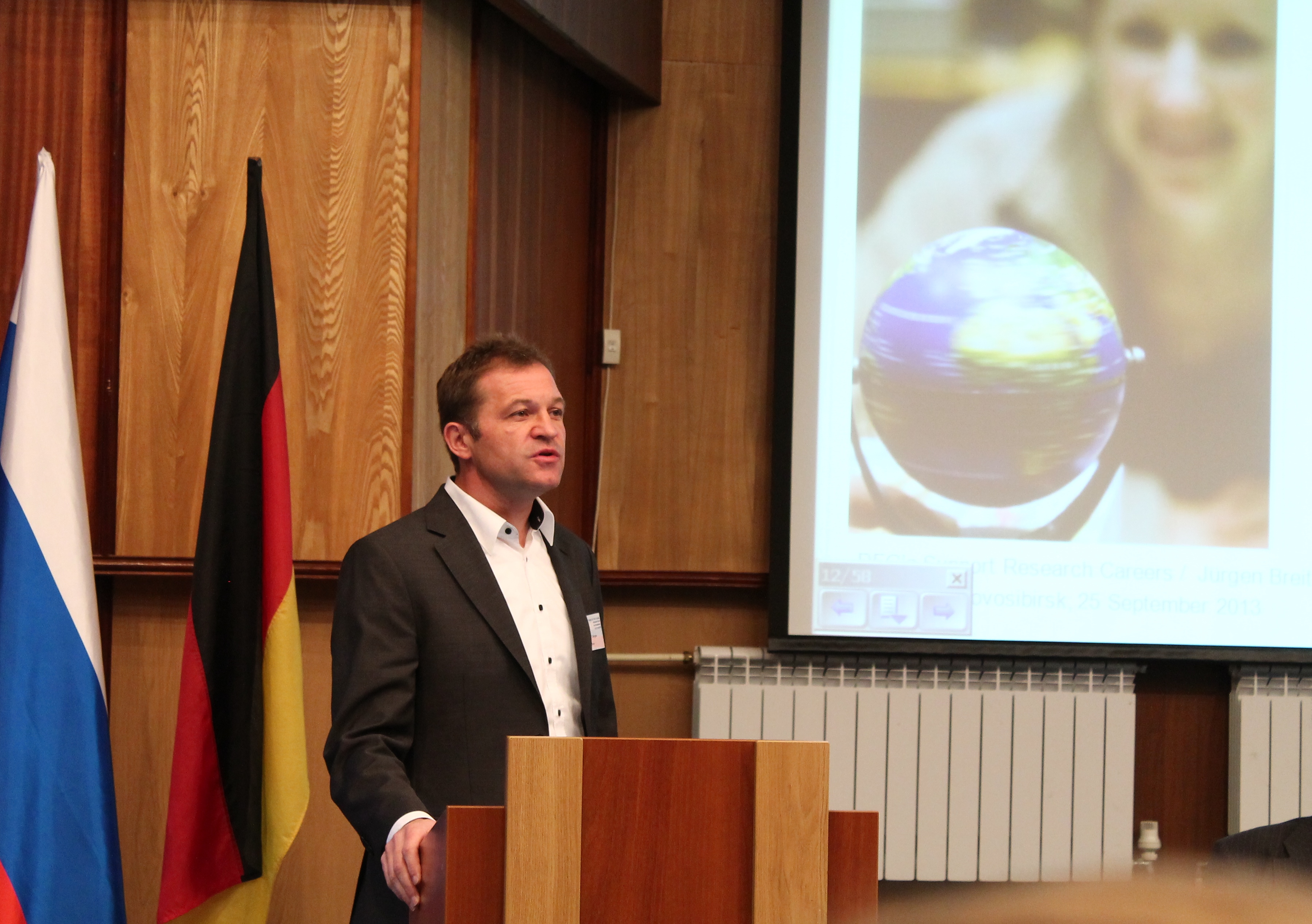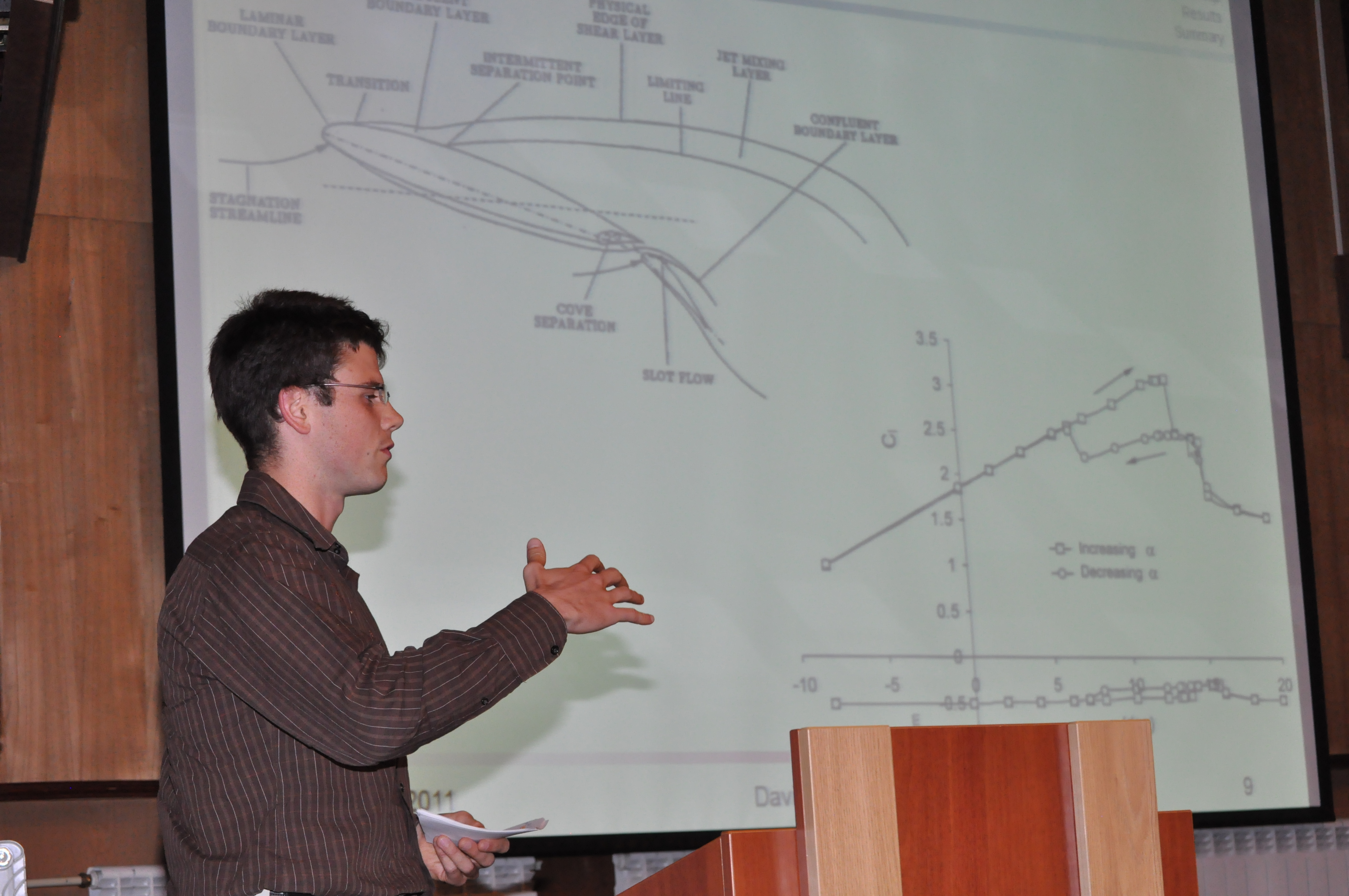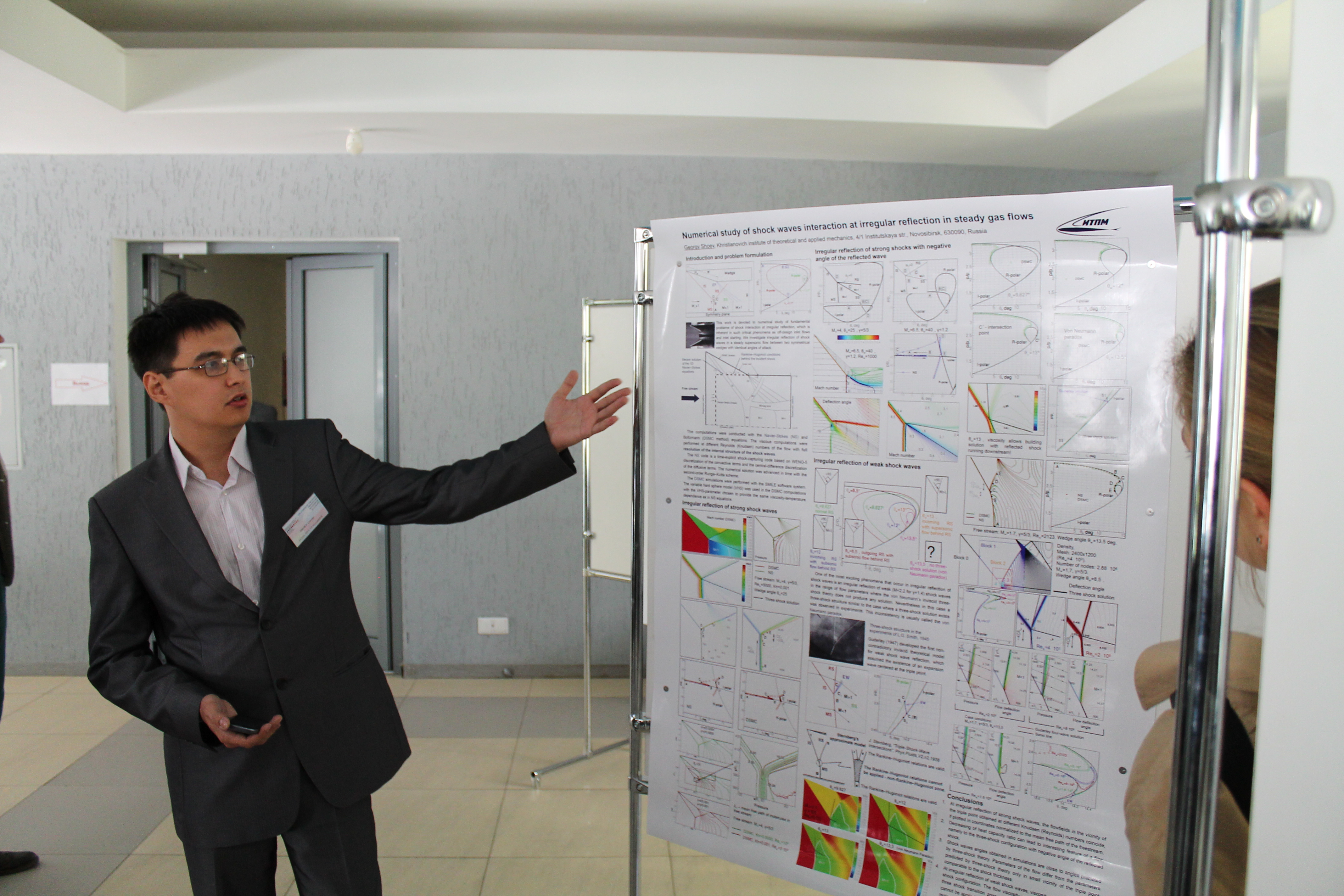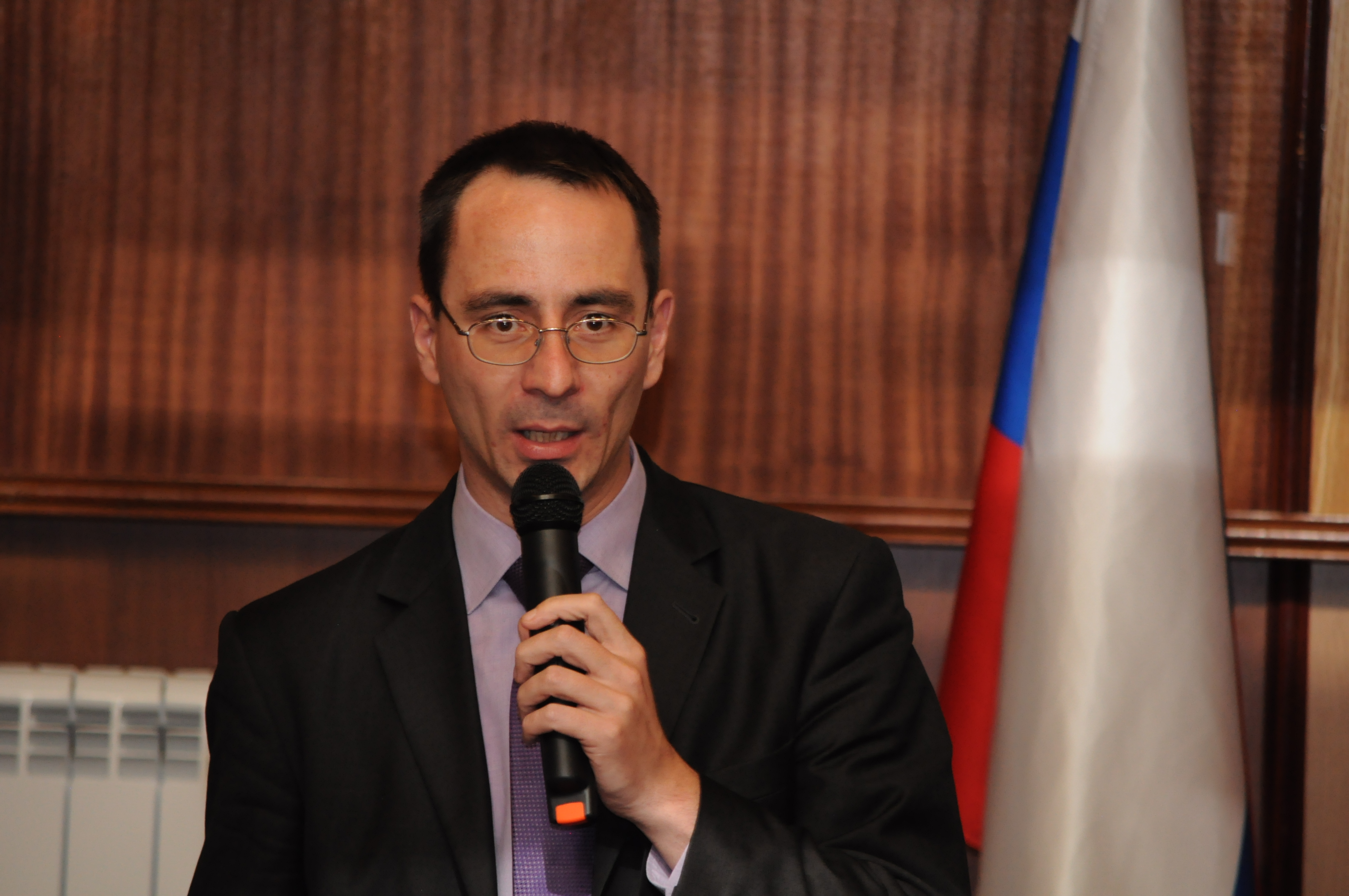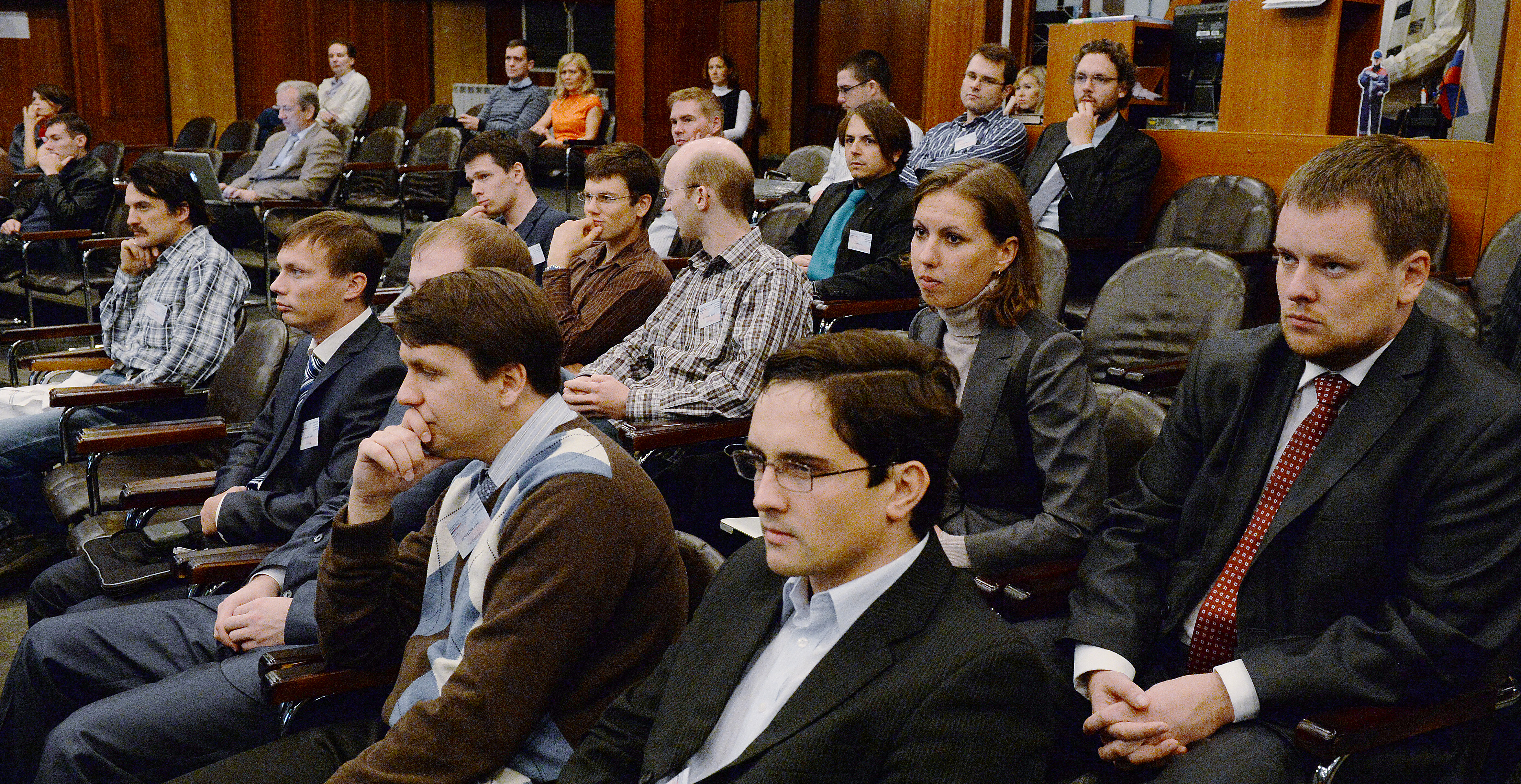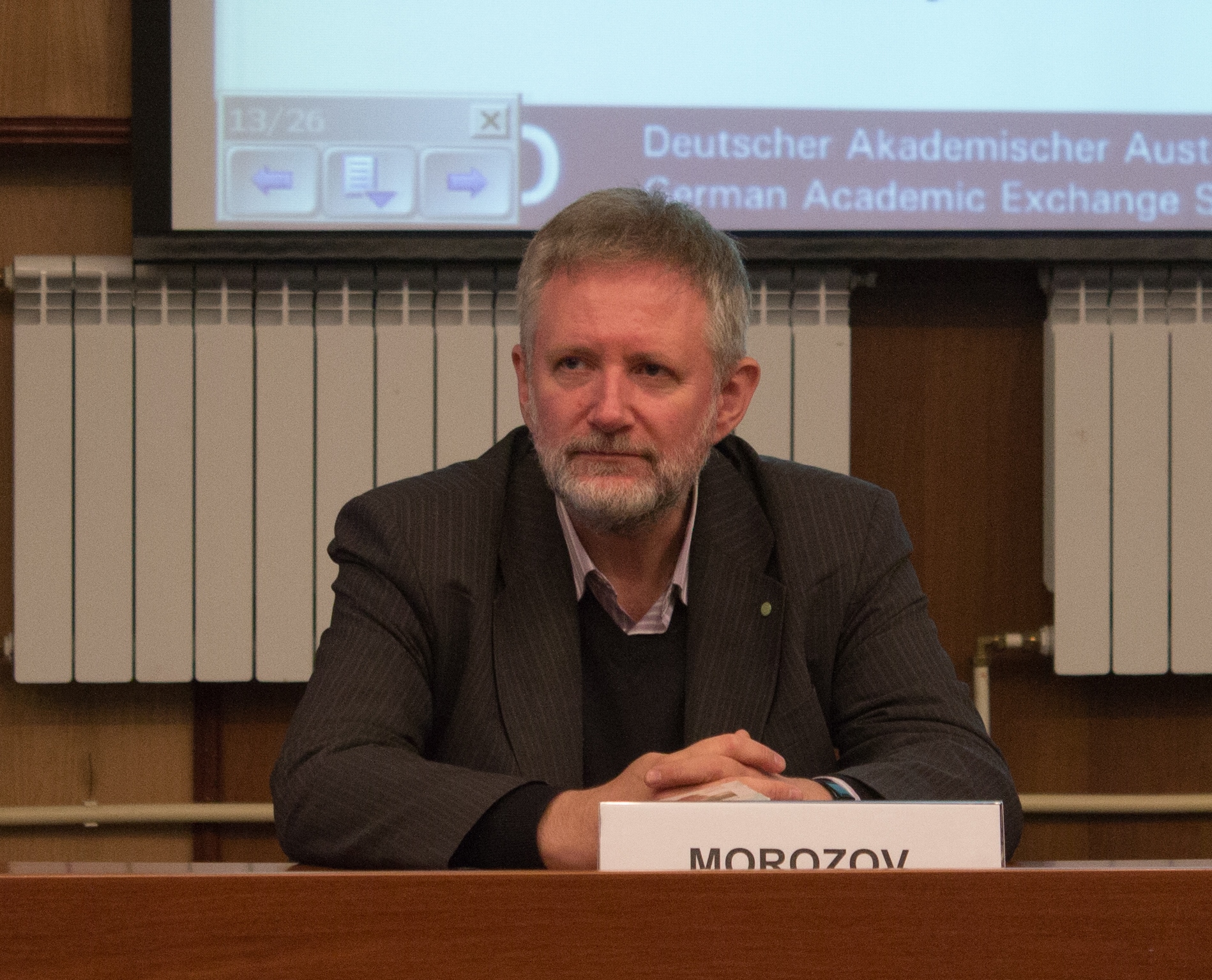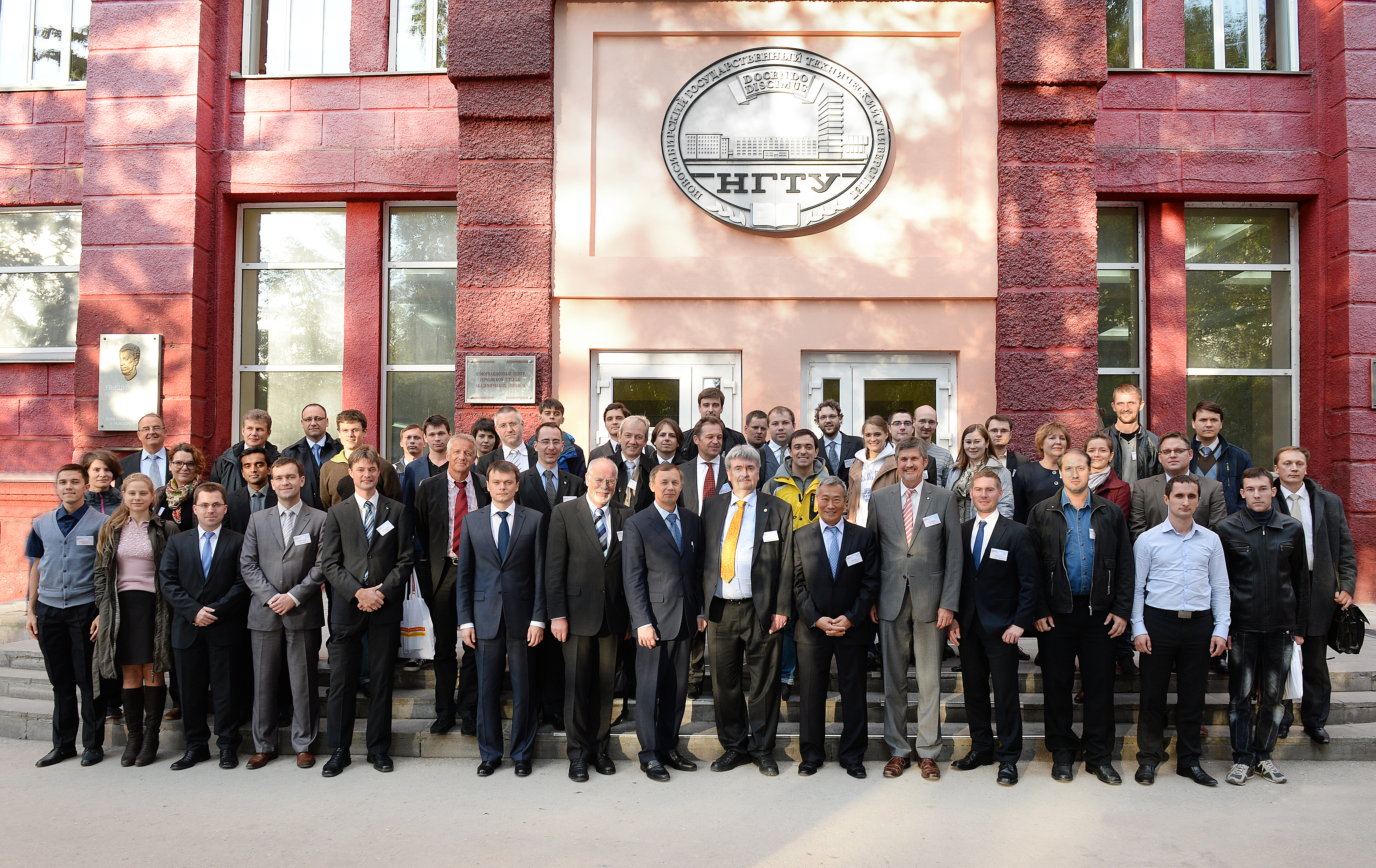German-Russian Week of the Young Researcher in Novosibirsk
Around 80 researchers meet to discuss "Aviation and Space"
Opening ceremony for Young Researcher Week at the NSTU
(30.09.13) From 23 to 27 September 2013, the German Academic Exchange Service (DAAD) and the Deutsche Forschungsgemeinschaft (DFG, German Research Foundation) organised the third "German-Russian Week of the Young Researcher" under the umbrella of the German House for Research and Innovation (DWIH Moscow). More than 80 doctoral and postdoctoral researchers and professors from both countries came together at the State Technical University and in Akademgorodok in Novosibirsk to discuss their research approaches on the topic of "Aviation and Space". The week was organised in cooperation with the Russian Union of Young Scientists (RoSMU) and with the support of the Siberian Department of the Russian Academy of Sciences (UoRAN).
Over 300 students and researchers from universities and research institutions in Novosibirsk took part in the formal opening of Young Researcher Week at the State Technical University. The participants were welcomed by administrators from the university, the regional Deputy Minister for Science and Education, as well as representatives of the Siberian Department of the Russian Academy of Sciences and the Russian Union of Young Scientists, RoSMU. Speaking on behalf of the German contingency, there were words of welcome from the vice-president of the DFG, Peter Funke, and the consul of the German Consulate General in Novosibirsk.
Networks and Collaboration
The purpose of the week was to encourage networking and stronger partnerships among early career researchers on a current priority area of the bilateral collaboration between Germany and Russia. Those invited were interested early career researchers from a range of German and Russian universities and institutes. The aim of the congress was to enable an interdisciplinary and international exchange at a scientific research level and to discuss topics including hypersonic technology, innovative engine concepts, resistance reduction in the field of aerodynamics, numerics and simulation, avionics, aircraft design and air traffic concepts, and also to discuss future joint research projects.
The forum gave young researchers the opportunity to report on their own work as well as listening to presentations by experienced researchers. The German representatives included Wolfgang Schröder (RWTH Aachen University), Klaus Janschek (Technical University of Dresden), Martin Oberlack (Technical University of Darmstadt), Uwe Gaisbauer (Technical University of Stuttgart), Rainer Walther (MTU Aero Engines) and Jörg Fuchte (DLR Hamburg). On behalf of the DFG, Michael Lentze (DFG Bonn) and Jürgen Breitkopf (DFG Bonn) spoke about funding opportunities in the field of engineering sciences and training programmes for early career researchers. In addition to the DFG, the DAAD and the AvH (Alexander von Humboldt Foundation), presentations were also given by the Helmholtz Association and the Free University of Berlin. The research community in Novosibirsk was represented by contributions from the State Technical University (NGTU), the State University (NGU), the State University of Architecture and Civil Engineering (Sibstrin), the Executive Committee of the Siberian Department of the Russian Academy of Sciences and of the Institute of Theoretical and Applied Mechanics (ITAM) and others.
With more than 1.5 million inhabitants, Novosibirsk is the third biggest city in Russia and one of the most important industrial and scientific cities in the Federation. The 32 tertiary institutions, including the State Technical University (NGTU) and the new National Research University (NGU) boast 120,000 enrolled students. Founded in 1957, the research town "Akademgorodok" is the scientific centre of Siberia and simultaneously the home of the Siberian Department of the Russian Academy of Sciences (SORAN) with a total of 77 research institutes and 9,000 employees.
The first "Young Researcher Week" took place in 2011 at the Federal University of Kazan on the topic of "Man and Energy", with a second in 2012 at the Federal University of Yekaterinburg which took as its theme the subject of "Health and Society". The young researcher weeks were set up as an initiative of the DAAD and DFG as part of the German-Russian Year of Science, Education and Innovation. Held once each year at changing locations in Russia, they aim to address global issues through international cooperation.
